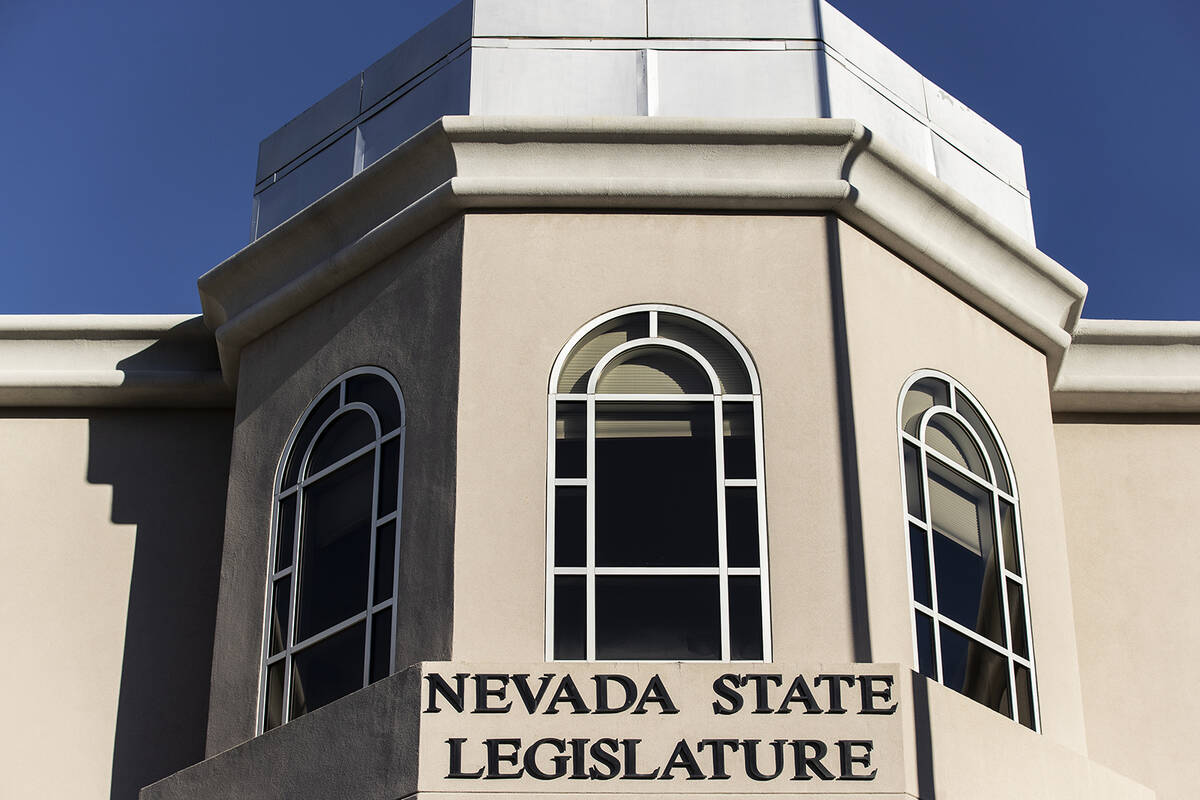Lawmakers take 1st look at governor’s education, administration bills

CARSON CITY — Lawmakers had their first chance to parse the details of Gov. Joe Lombardo’s plan to expand school choice during a bill hearing that stretched late into Wednesday evening.
The governor’s chief of staff, Ben Kieckhefer, presented two of Lombardo’s bills, including one encompassing much of the governor’s education goals and the other related to government administration, during two separate committee hearings.
Joined by Superintendent of Public Instruction Jhone Ebert, Kieckhefer fielded questions for approximately two hours from lawmakers on the Assembly Ways and Means Committee on Assembly Bill 400, an expansive education bill meant to serve as a companion to Lombardo’s $2 billion budget proposal for an increase in funding for K-12 education over the biennium.
Push to expand alternatives
The proposed legislation, if passed, would make good on promises made by Lombardo on the campaign trail to expand school choice, a policy that allows parents to choose where their children go to school regardless of where they live.
The bill would create the Office of School Choice within the Department of Education, which would “serve as a clearinghouse of available options and information for families,” Kieckhefer said.
The legislation would also boost funding for Opportunity Scholarships, which help cover tuition for private schools, and would expand which families can access those scholarships. Local and tribal governments would be able to sponsor charter schools under the bill.
The proposed legislation would also fulfill a Lombardo campaign promise to reinstate a key provision of the Read by Grade 3 program, which would require students who fail to read at grade level in third grade to be held back rather than advance to fourth grade, unless granted an exemption or placed in a transitional program. It would also create the Early Childhood Literacy and Readiness Account to fund “evidence-based” literacy programs.
The proposal also would increase funding for certain scholarships meant to address the state’s teacher shortage and would expand the responsibilities of the Commission on School Funding to include an accountability arm to ensure dollars are used to increase student outcomes.
Concern for public schools
Democrats on the committee raised concerns with several provisions of the bill. Assembly Speaker Steve Yeager, D-Las Vegas, questioned why legislators shouldn’t put the money toward the state’s underfunded public school system.
Kieckhefer pushed back on his question.
“You’re not funding private schools,” he said. “You’re funding their children’s education, and you’re giving them the opportunity to choose the educational environment that’s best suited for their child.”
The bill drew support from the Nevada Republican Party, the Las Vegas Chamber of Commerce and Power2Parent, among others.
“Parents with children and failing schools are desperate to find alternatives. They add their names to long waiting lists for charter schools and magnet schools, praying for luck in the lottery,” Power2Parent President Erin Phillips said.
But multiple groups opposed the bill, including the Nevada State Education Association, the Clark County Association of School Administrators and Professional Technical Employees, the Public Employees’ Retirement System and Battle Born Progress.
“If I don’t approve of the job that the firefighters do, should I get my taxpayer dollars back?” asked Battle Born Progress Executive Director Annette Magnus. “That’s not how taxes work. That’s not how funding public education should work either.”
‘More nimble, more strategic, more responsive’
And it wasn’t the only bill officials from the governor’s office fielded questions about for over an hour.
During the Senate Government Affairs hearing, Kieckhefer presented Senate Bill 431, a proposal from the governor that would make several changes to the executive branch and state employees to make the executive branch “more nimble, more strategic and more responsive,” he said.
The bill would remove the salary cap of 95 percent of the governor’s salary to “create a more effective pay structure,” would increase the Rainy Day Fund cap from 20 percent to 30 percent and would create the Nevada Way Account, which is meant to be used for critical infrastructure projects.
The proposed legislation would make several other changes, including creating a chief innovation officer, restructuring the Nevada Department of Employment, Training and Rehabilitation, and creating the Office of Boards, Commissions and Councils in the state Department of Business and Industry. An earlier proposal to create “Cabinet secretary” positions to oversee multiple departments was scrapped.
Contact Taylor R. Avery at TAvery@reviewjournal.com. Follow @travery98 on Twitter.